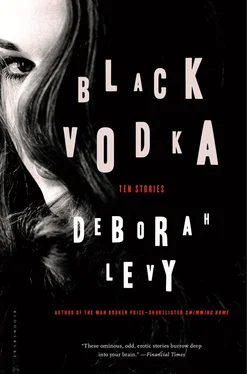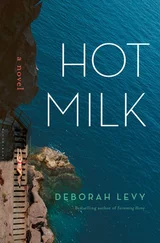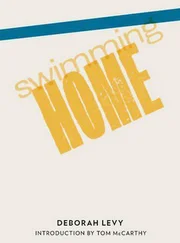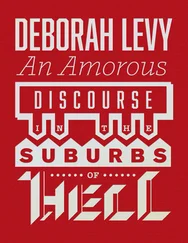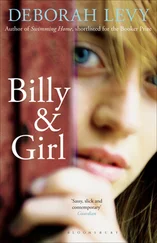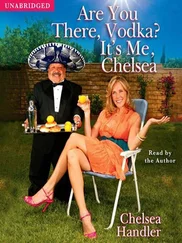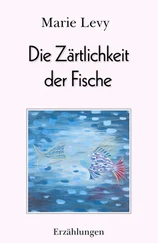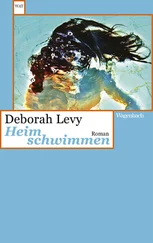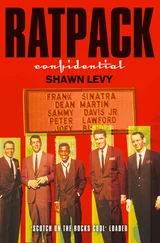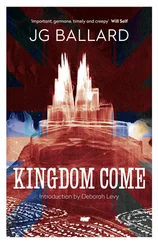11
This is his sixth day without Naomi. As Mr Tegala rides his bicycle to the pub, he hums his favourite Leonard Cohen song. A passing truck knocks him into the gutter. Simon Tegala is bleeding and bruised and he can’t stand up. Apparently someone has called an ambulance. He wonders if Naomi would leave him if she knew Leonard Cohen was his hero. And then he remembers Naomi has left him anyway.
12
The nurse in Casualty asks Mr Tegala if he knows anyone who can drive him home. Simon Tegala winces because she is taking out the glass shards in his thigh with long silver tweezers. The nurse says, ‘Now look up, because I’m going to put some antiseptic on your chin.’ When he looks up he sees Naomi leaning against the wall, holding a brown paper bag full of apples. Look over there, Naomi says, and she points to the door. Simon Tegala sees his father waving at him with his right hand because his left hand is holding a steel crutch. His father is wearing a hat and an overcoat and he is speaking. The only person in the room who can understand him is Simon Tegala because his father can only whisper. We’ve come to get you son, the taxi is waiting outside. Next time keep your eyes open when you ride a bicycle. Naomi’s red heels click across the floor towards Simon Tegala and then she is just one centimetre away from his lips.
Her husband who is going to betray her is standing inside the city of Roma. She is talking to him over the wall because she is not invited inside. She says, ‘You’ve broken my heart,’ in the way an actress might say it. Standing by the fountain in the centre of Roma is the woman who admires her husband. She walks past him in jeans and trainers. Her neck and cheeks are flushed.
When she wakes up from this dream about her husband betraying her, the traitor is lying by her side. A radio in the room next door announces that the Federal Reserve has dropped interest rates in the USA and European markets are expected to follow suit. She puts her hand here and there on her husband’s warm body and tells him nothing about her dream. In five hours they will be out of the British weather. They will spend four days in Portugal and then return to the UK for Christmas. Their bags are packed. A cab will call for them. The lodger in the room next door, Mr Patel, the man who listens to the radio all day long, has bought her a present for the trip. A slab of Ayurvedic soap made from eighteen herbs.
It has been raining in Portugal for three days and nights. She walks down to the sea with her husband. The drenched succulents and rotting fishing boats have the same atmosphere of betrayal she experienced in her dream. She stares into the shallows of the salt lagoon. A stork stands in the mud.
And another.
Her husband takes a photograph of the two storks. When she holds his bag for him he comments on how pleasant her hands smell. She tells him it’s the Ayurvedic soap that Mr Patel gave her and that he should try it too. That night they eat in the Cafe Emigrante. A shack restaurant in the poorer part of the village. Varnished bamboo poles line the crumbling walls inside. The cook throws bloody fish onto smouldering charcoal. They break bread, scoop up white cheese and shrivelled, sour olives. Outside it is raining again. Their hotel room is not a place that invites intimacy. The cold marble floor. The thin blankets that are not warm enough for December in the Algarve. Two single beds pushed together. She finds Roma once again in her dreams and it is a warmer place to be.
The river is full of stars in Roma. Baroque water flows over rocks and stones. Her husband who is going to betray her sits at a table with his admirer eating almond Easter cakes, iced white in the shape of small bells. His admirer is strong. Desire has made her strong. Her skin is tanned. Her eyes and hair are black. She shakes the three green bracelets on her wrists and says, ‘I have thought about what you have to say and it’s interesting.’ His wife watches from the other side of the wall. ‘He is in love,’ she thinks. She knows he is trying not to be in love.
In the morning they dip sweet sponge cakes into milky coffee in the Cafe Emigrante. The siren from the factory on the other side of the river calls people to work. Women run out of houses clutching carrier bags and sandwiches wrapped in wax paper. This reminds her of the paper the Ayurvedic soap was wrapped in. The letters carved into the green soap told her it was called M-e-d-i-m-i-x and it was made in a factory in Chennai.
Returning to London. The same old bus routes. The dirty old roads. The Christmas trees glimpsed through windows of London houses. Blue lights glowing through the pine needles. She looks down at a scrap of paper in her hand. It tells her to buy a turkey. She invites Mr Patel to join them for Christmas lunch. Again he tells her how much he is enjoying his stay in the United Kingdom. There are no mosquitoes, no humidity, less pollution.
It is snowing.
It never snows in Roma. It is August in her dream. Romans leave their stifling city. They pack their bags and make off to the coast and mountains to swim in lakes and recover from the knocks and disappointments of the year. She sees her husband waiting for his admirer at a cafe that is closed for summer. The shutters are down. The tables and chairs stacked up. His wife knows what she must say to her husband from the other side of the wall. She says, ‘You totally enriched my life.’ His face is impassive but he cries. Tears fall from his eyes and arrange themselves on his cheek like Man Ray tears.
On Christmas Day she kisses her sleeping husband and opens the window. The radio in the next room describes the current peace talks, an American initiative in the Middle East. As they open their presents in bed, her husband wishes her a happy Christmas but she interrupts him. She says she knows he wants to leave her. She says she has noticed he has not unpacked his bags from Portugal. She says she understands he is in love with someone else but does he think there is a chance they might make it through the coming year? He tells her this is true and he doesn’t know what to do and he was waiting to tell her but he could not find the words. She does not tell him that she has been standing outside the city of Roma, watching and talking to him over the wall.
My mother died when I was twelve years old. I watched her green eyes close, and then, for five shocking seconds, open again. When she closed her eyes for the last time, I was both relieved and devastated. My mother was a historian. When she died, everything she knew about the twentieth century died with her. As a child she told me stories I thought she’d made up. Later, I learned that the things she described had really happened in the world.
The Fall of the British Empire I associate with brown shoe polish and Mom’s high heels, while Fidel Castro’s army taking power in Cuba is irrevocably linked with the warm maple syrup she poured onto pancakes on Sunday mornings. My mother wanted a better life for Russian women selling their slippers in the Moscow snow and she wanted a better life for me, her London boy with bright eyes just like hers. I never once missed my father. He walked out on both of us before I was born and I hope he walked straight into a wall. When my school friends asked who my dad was I said Humphrey Bogart, because Mom and I watched Casablanca every Christmas and I thought he was the most handsome man in the world.
Although there have been times I’ve hated my life, there is no part of my city that I dislike. London for me is like surfing a grey wave in the rain. I even like the cracks in the paving stones. Ok, sometimes I yearn to be elsewhere. To live on a palm-lined drive in Florida, sunning myself at the edge of one of California’s blue pools, singing moody tunes out into the American sunset. The Pacific rolling and everything in a petroleum haze. Don’t think I have not dreamed of cruising America’s tremendous steaming tarmac in a chrome machine, waving at bronzed brunettes in bikinis and chains of gold hugging their tiny waists. But my heart is in London with its tough tender girls walking arm-in-arm in their raincoats, smiling with teeth crooked, pierced eyebrows and lips, imperfect dreamers and schemers, loud laughers, yearners with highlights in their hair. Some of them have even yearned for me, but it is Elisa who grabbed my broken heart and understood that to lose your mother is to lose half your life. I had no father so it felt as though I had lost all my life. But Mom taught me something wonderful. She said, Be sure to enjoy language, experiment with ways of talking, be exuberant even when you don’t feel like it because language can make your world a better place to live.
Читать дальше
